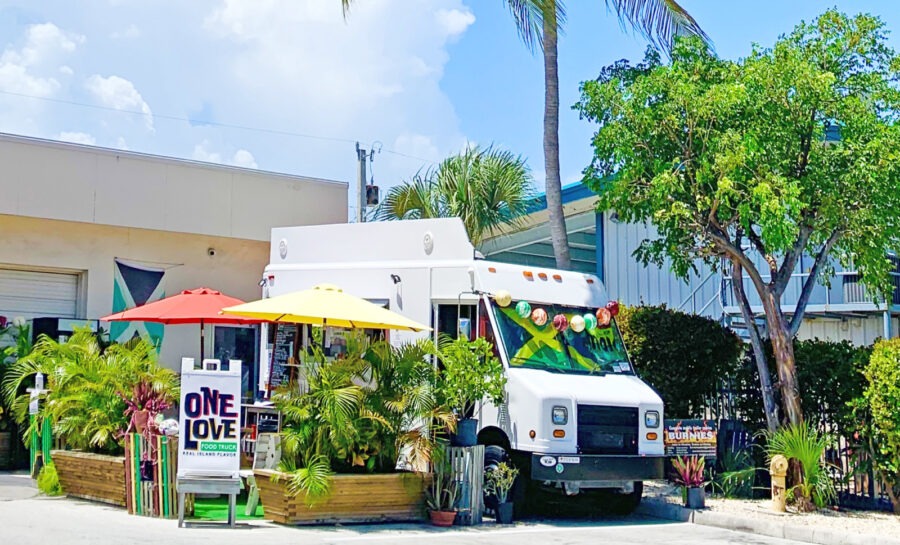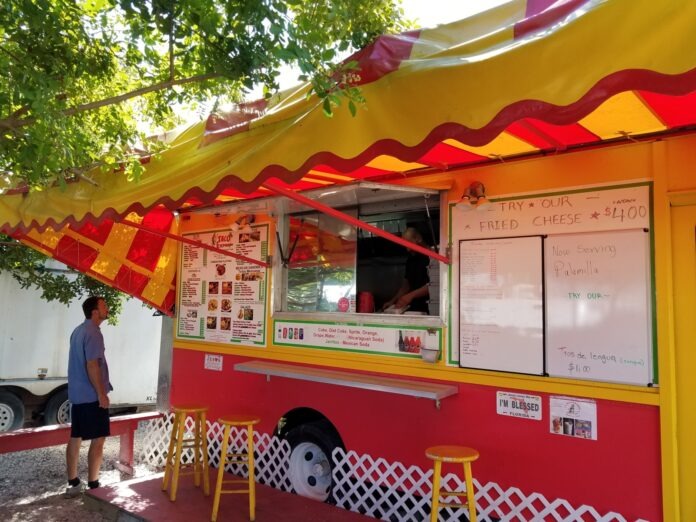Several Stock Island restaurant owners are frustrated by a recent proliferation of food trucks, prompting county officials to consider concerns that have become familiar throughout Florida.
While prior I Love Stock Island festivals have touted food truck tours, owners of brick-and-mortar restaurants are starting to resent the expense of operating a permanent location, while having to compete with an estimated 12 to 14 food trucks on the small island.
“What am I even doing anymore?” said Jeff Tomita, whose family has owned Chico’s Cantina for more than two decades.
Restaurant owners pay mortgages or rents, utility bills, insurance, full kitchen staff salaries, impact fees per seats and are bound by parking requirements that mandate a certain number of spots based on the size of the restaurant.
“Food trucks only have one, maybe two, workers, no mortgage, no utility bills,” Tomita said. “I could put two or three food trucks in my parking lot, and be done with it. It’s crazy.”
County commissioners on March 25 had a brief discussion about existing and potential regulations for food trucks in unincorporated Monroe County, which includes Stock Island.
Florida state law prohibits cities and counties from banning food trucks outright in their municipalities, as some towns had tried to do over the past 10 or 12 years in order to protect brick-and-mortar restaurants. But local officials can regulate where food trucks can and cannot operate based on zoning.

Monroe County currently requires food trucks to be located on private property, and allows them to operate in any zoning areas where restaurants are allowed with no requirement that food trucks be located a certain distance from any permanent restaurants. Licensing, permits and fees for food trucks are preempted by the state, meaning local governments cannot impose additional fees or permit requirements on food trucks once they obtain a license from the Florida Department of Business and Professional Regulation.
That preemption came in the Occupational Freedom and Opportunity Act, which Gov. Ron DeSantis signed in 2020, reducing regulations on more than a dozen industries.
“The new law also clears up a longstanding disagreement over whether state or local officials control the licensing process for food trucks by placing health and safety issues under state authority,” states a 2020 article on the libertarian website reason.com, which supported the deregulation bill. “Local officials will still be able to keep food trucks out of certain areas with zoning laws, but they won’t be able to pile additional licensing requirements on top of existing state rules to block vendors from operating.”
Monroe County commissioners this week did not vote on any changes to the Florida Keys’ food truck regulations, but further discussions are likely. Officials in other Florida cities and counties have passed proximity regulations that prohibit food trucks from operating within a certain distance of a permanent restaurant.
Food truck proponents have claimed that cities and counties that restricted mobile food vendors were playing favorites and protecting brick-and-mortar restaurants.
“It’s not the government’s job to pick winners and losers in the marketplace. That right belongs to consumers,” said Justin Pearson, an attorney with the Institute for Justice, a nonprofit law firm that helped food truck owners sue Florida cities and counties over restrictions.
But frustrated restaurant owners are seeking further discussions and eventual decisions by county officials.





















